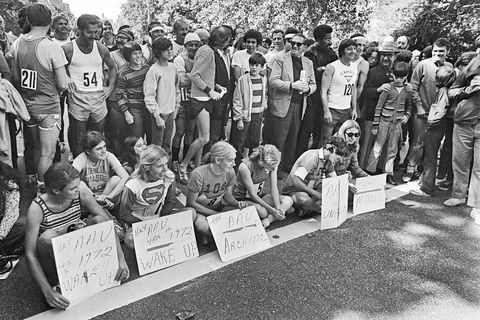“The following list is of NINE things a woman couldn’t do in 1971” Robyn, aka sunsong23 writes “a woman could not:
Get a Credit Card in her own name – it wasn’t until 1974 that a law forced credit card companies to issue cards to women without their husband’s signature (via).
Be guaranteed that they wouldn’t be unceremoniously fired for the offense of getting pregnant – that changed with the Pregnancy Discrimination Act of *1978*. Despite the act, pregnancy discrimination is still a major issue in woman’s sports (via).
Fight on the front lines – admitted into military academies in 1976 it wasn’t until 2013 that the military ban on women in combat was lifted (via).
Serve on a jury - It varied by state (Utah deemed women fit for jury duty way back in 1879), but the main reason women were kept out of jury pools was that they were considered the center of the home, which was their primary responsibility as caregivers. They were also thought to be too fragile to hear the grisly details of crimes and too sympathetic by nature to be able to remain objective about those accused of offenses. In 1961, the Supreme Court unanimously upheld a Florida law that exempted women from serving on juries. It wasn't until 1973 that women could serve on juries in all 50 states (via).
Get an Ivy League education - Yale and Princeton didn't accept female students until 1969. Harvard didn't admit women until 1977 (when it merged with the all-female Radcliffe College). Brown (which merged with women's college Pembroke), Dartmouth and Columbia did not offer admission to women until 1971, 1972 and 1981, respectively (via).
Take legal action against workplace sexual harassment. Indeed the first time a court recognized office sexual harassment as grounds for any legal action was in 1977 (via).
Decide not to have sex if their husband wanted to – spousal rape wasn’t criminalized in all 50 states until 1993 (via).
Until a 1972 Supreme Court case, unmarried women in some states were prohibited from purchasing birth control pills (via).
Sheesh.
For more on . . .



